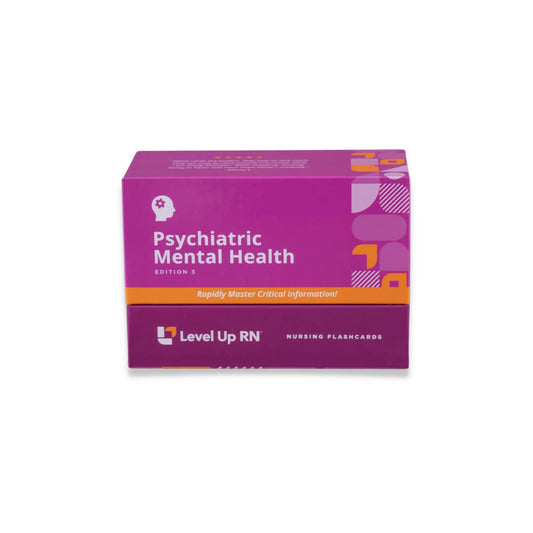Psychiatric Mental Health, part 34: Disorders - Dissociative Disorders
Dissociative disorders, including: dissociative amnesia, depersonalization disorder, and dissociative identity disorder. Risk factors, diagnosis, treatment, and nursing care of patients with dissociative disorders.
Full Transcript: Psychiatric Mental Health, part 34: Disorders - Dissociative Disorders
Full Transcript: Psychiatric Mental Health, part 34: Disorders - Dissociative Disorders
Hi, I'm Cathy with Level Up RN. In this video, we are going to talk about dissociative disorders. And at the end of the video, I'm going to give you guys a little quiz to test your knowledge of some of the key points we'll be covering. So definitely stay tuned for that. Dissociative disorders are a group of disorders that are characterized by a feeling of detachment from reality and/or memory loss. So risk factors that make it more likely that someone will develop a dissociative disorder includes a history of psychological trauma, such as abuse or combat. The three main types of dissociative disorders include dissociative amnesia, depersonalization disorder, and dissociative identity disorder. With dissociative amnesia, an individual has difficulty remembering key information about themselves. With depersonalization disorder, which is also referred to as depersonalization/derealization disorder, an individual has a feeling of detachment from their thoughts, feelings, and/or actions. So it is sometimes described as like watching yourself in a movie. And then with dissociative identity disorder, which used to be called multiple personality disorder, this is when an individual exhibits two or more distinct personalities. Diagnosis of a dissociative disorder includes a review of the patient's symptoms and history, as well as ruling out any underlying medical cause of the patient's symptoms. Treatment includes cognitive behavioral therapy, or CBT, as well as dialectical behavioral therapy or DBT. So DBT is a specific form of CBT that is really focused on helping the patient regulate their emotions and decrease self-destructive behavior. EMDR is another treatment option. This stands for Eye Movement Desensitization and Reprocessing.
In terms of nursing care of a patient who has a dissociative disorder, you want to encourage the use of coping skills. You want to teach your patient stress management techniques and also teach your patient grounding techniques. So grounding techniques are things that help to anchor the patient to the present moment. So examples of grounding techniques can include looking around and describing exactly what you see. It can include touching and holding objects. It can also include things such as stomping your feet. All right. It's quiz time, and I've got three questions for you. Question number one. Which dissociative disorder is characterized by a feeling of detachment from your feelings, thoughts, or actions? The answer is depersonalization disorder. Question number two. What dissociative disorder is characterized by an individual exhibiting two or more distinct personalities? The answer is dissociative identity disorder. Question number three. Blank techniques are activities that help to anchor the patient in the present moment. The answer is grounding. All right. That's it for this video. Thank you so much for watching. Take care and good luck with studying.


